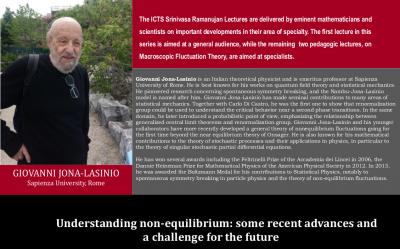Far from equilibrium behavior is ubiquitous.Indeed most of the processes that characterize energy flow occur far from equilibrium. These range from very large systems, such as weather patterns or ocean currents that remain far from equilibrium owing to an influx of energy, to biological structures. Away-from-equilibrium processes occur on time scales ranging from nanoseconds to millennia. A difficulty of non-equilibrium physics is that usual thermodynamic functions of state like entropy or free energy do not generalize easily.The study of rare fluctuations of thermodynamic variables like densities or currents in stationary states has led to the identification of thermodynamic functions relevant in far from equilibrium situations.For a wide class of systems, called diffusive systems, it has been possible to develop a comprehensive unified theory, known as Macroscopic Fluctuation Theory, with considerable predictive power. Among the predictions,long range correlations generically appearing in non-equilibrium stationary states,phase transitions possible in non-equilibrium but impossible in equilibrium or phase transitions in current fluctuations spontaneously breaking translational invariance in time. Much remains to be done. Besides the purely scientific motivation, the challenge is to deal effectively with basic issues facing humanity like energy problems, climate control, understanding living matter.
Lecture 1: 3 November 2015, 4:00 PM
Lecture 2: 4 November 2015, 10:00 AM
Lecture 3: 5 November 2015, 10:00 AM
Venue: Ramanujan Lecture Hall, ICTS campus
This lecture is part of Non-equilibrium statistical physics


